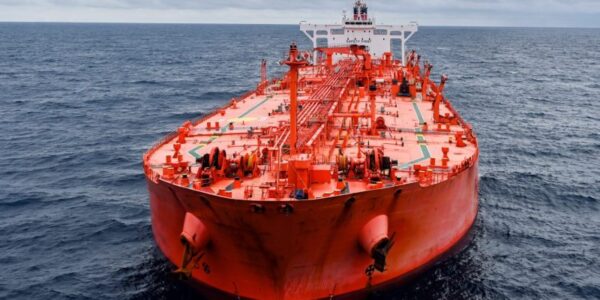Transportation services at Maasvlakte, particularly within the Port of Rotterdam, are integral to the smooth operation of one of Europe’s largest and busiest logistics hubs. The port serves as a critical gateway for goods moving in and out of Europe, encompassing a wide array of transportation services that facilitate efficient cargo handling and distribution across various modes of transport.
### Key Features of Transportation Services at Maasvlakte:
1. **Maritime Connectivity**: Maasvlakte offers extensive deep-water berths capable of accommodating the largest container vessels and bulk carriers. This maritime connectivity enables efficient handling and transshipment of containers, bulk commodities, and liquid bulk cargoes, enhancing global trade flows.
2. **Container Handling**: The port features state-of-the-art container terminals equipped with advanced cranes and handling equipment. These terminals facilitate rapid loading and unloading of containers, optimizing turnaround times for shipping lines and ensuring timely delivery of goods to inland destinations.
3. **Intermodal Connectivity**: Maasvlakte is well-integrated with Europe’s extensive rail and road networks, offering seamless intermodal transportation solutions. Rail terminals within the port enable direct connections to major European cities and industrial hubs, reducing road congestion and carbon emissions.
4. **Specialized Facilities**: In addition to standard cargo handling, Maasvlakte accommodates specialized facilities for handling project cargo, breakbulk shipments, and refrigerated goods. These facilities cater to diverse industry requirements, including automotive, chemicals, perishables, and heavy machinery.
5. **Logistics Efficiency**: Efficient logistics operations at Maasvlakte are supported by advanced technology and automated systems. This includes real-time tracking of shipments, digital documentation, and integrated supply chain management solutions that enhance transparency and operational efficiency.
### Importance and Impact:
– **Trade Facilitation**: Transportation services at Maasvlakte play a crucial role in facilitating international trade, connecting European markets with global suppliers and consumers. The port’s strategic location and efficient logistics infrastructure contribute to its role as a preferred gateway for cargo destined for Europe.
– **Economic Growth**: The port’s transportation services generate significant economic benefits through job creation, investment attraction, and enhanced competitiveness for industries reliant on global supply chains. Maasvlakte’s efficient cargo handling capabilities support economic growth and regional development.
– **Environmental Responsibility**: Maasvlakte prioritizes environmental sustainability through initiatives such as shore power facilities for vessels, electrification of port equipment, and emission reduction strategies. These efforts aim to minimize the port’s carbon footprint and promote sustainable transportation practices.
– **Innovation and Adaptability**: Continued investment in infrastructure upgrades and technological innovations ensures that Maasvlakte remains at the forefront of global logistics trends. This includes digitalization initiatives, smart port technologies, and collaborative efforts with industry partners to enhance operational resilience and agility.
Our Shipping Service
Our company provides cutting-edge multimodal shipping and procurement services, demands shipping solutions to handle any kind of product, and concentrates on all domestic and international business and personal needs. For over a decade, our representative has been employed by global trade and logistics firms. Intermodal services and full circuit solutions for networked supply management are two of its areas of expertise. Brokers work for terminal owners and foreign traders by either directly leasing out available space or subleasing it. Our idea to fill the gap left by the absence of storage brokerage came from our experience as the terminal operator of a bulk liquid storage terminal in the Netherlands that includes packed product warehousing and drumming activities. We have the experience necessary to provide a wide range of services to cargo owners and terminal operators having worked for trading houses, producers, ship owners, and terminal operators.
Ship to Ship Transfer
Transferring petroleum products from one tanker to another has grown more common in the US and the Netherlands. Operations involving a fleet feeder tanker and a mother tanker serving as temporary floating storage take place in a sea area that has been designated by the relevant authority. Petroleum products that have been transported from the refinery and loaded onto the mother vessel will be distributed by feeder tankers. Ship-to-ship transfer services can be tailored to the specific needs of the client. These duties may involve organizing and supervising ship-to-ship transfers on behalf of clients.
Transshipment Of Crude Oil And Petroleum Products
Storage and Transshipment B.V. staff has a proud tradition of nearly years of services in transshipment and port industry. We have earned an excellent reputation by combining reliable, powerful and vessels with the expertise and experience of its operations, to provide a safe and high quality service in the area where it is active. It provides a range of competitive transshipment services to various global shipping lines, assisting tankers of all types and sizes including the LNG carriers.
Our cargo clients have experienced our flexibility, transshipment service that is dependable, on-time performance, and power companies, raw petroleum producers, oil product traders, importers, exporters, and other industrial end-users, owners, and charterers. As a comprehensive transshipment business, we reload an extensive variety of oil products. We provide the choice of pumping different kinds of oil products and crude oil from tanker to tanker, or tank to tank, or vice versa. Furthermore, we have a great deal of experience blending—the process of combining gases and liquids in tank containers.
The MOTH fleet
A combination of deep-sea vessels, time chartered tonnage, pooled tonnage and other owned tonnage allows us to optimize fleet size and meet the changing market demands.


